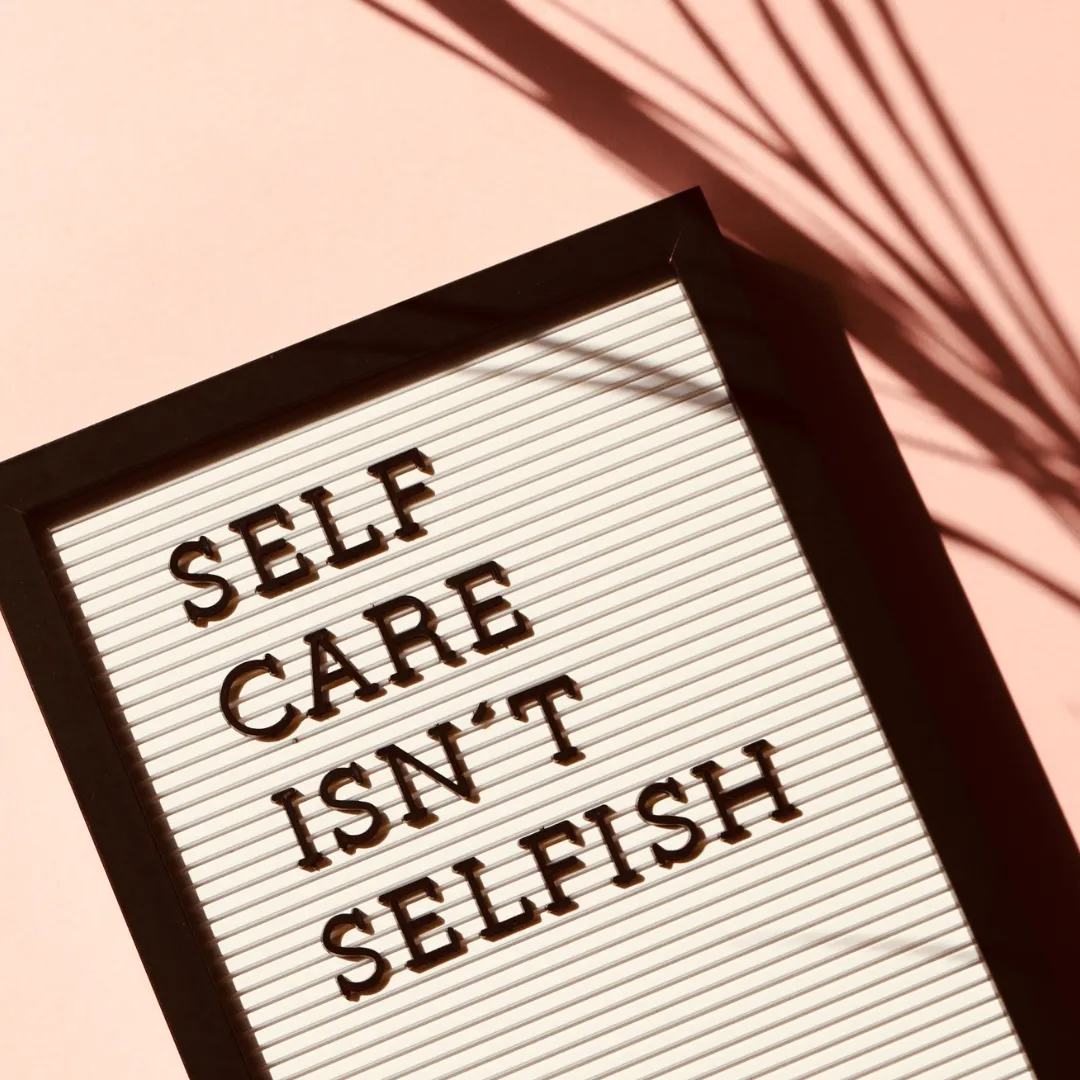Essential Self-Care Strategies for Women Over 40: A Comprehensive Guide
As women reach the threshold of 40, self-care becomes more than a luxury—it's vital to living a balanced and fulfilling life. With the right strategies, midlife can be a time of vibrant health, personal growth, and profound well-being.
***This post contains an affiliate link. If you purchase a product or service through the link, we may receive a small commission, which helps to support the site. The opinions expressed on our site are our own and not influenced by any affiliate commissions we may receive.***
This guide is dedicated to helping women over 40 embrace this transformative period with grace and vitality.
Key Takeaways:
- Embrace holistic health practices to maintain physical, mental, and emotional well-being.
- Prioritize hormonal balance and nutrition to navigate the changes of midlife with ease.
- Incorporate fitness and beauty routines that celebrate and cater to the mature woman.
Holistic Health for Women 40 and Up
Holistic health is about caring for the whole person—body, mind, and spirit. For women over 40, this means integrating health tips that address all facets of well-being.
Mental health for women in their 40s is as essential as physical health. Practices like meditation, journaling, and engaging in creative activities can significantly reduce stress and promote emotional balance.
Additionally, self-love practices for aging women, such as positive self-talk and gratitude exercises, can enhance self-esteem and foster a positive outlook on life's transitions.
Nourishing Nutrition for Women Over Forty
Eating well is a cornerstone of self-care strategies for midlife. For women over 40, nutrition is not just about maintaining a healthy weight; it's about nourishing the body to support hormonal balance and energy levels.
A diet rich in antioxidants, lean proteins, and whole grains can combat the sluggish metabolism that often accompanies aging. Including foods like blueberries, salmon, and quinoa can significantly affect how you feel and function daily.
Moreover, as women transition into their 40s and beyond, calcium and vitamin D become crucial for bone health, while omega-3 fatty acids support heart and brain wellness. It's not just about what you eat, but how you eat.
Mindful eating encourages a deeper connection with food, promoting better digestion and satisfaction. Personalized nutrition plans, like those in a comprehensive Menopause Wellness Guide, can help manage menopausal symptoms and maintain vitality through life's prime.
Skincare and Beauty Routines for the Mature Woman
Regarding beauty routines for mature women, it's all about embracing your natural beauty and giving your skin the tender, loving care it deserves. Our skin needs change as we age, and adapting our skincare regimen is crucial.
Hydration becomes the game's name, with products rich in hyaluronic acid and ceramides becoming your new best friends. Please don't shy away from retinoids either; they're the secret agents in the fight against fine lines, helping to boost collagen production and speed up cell turnover.
But it's not just about what you put on your skin; it's also about how you treat it. Gentle cleansing, regular exfoliation, and diligent sun protection are foundational elements of a midlife self-care routine.
Consider incorporating facial massages or jade rolling into your routine to promote circulation and lymphatic drainage, giving your complexion that coveted youthful glow.
Remember, beauty at this stage is about highlighting your natural elegance, so choose products and practices that make you feel confident and radiant.
Stress Management for Middle-Aged Women
Stress can be a silent saboteur in the lives of women over 40, often exacerbating health issues and diminishing quality of life. Stress management for middle-aged women is not just about coping with stress but transforming it into a catalyst for growth and well-being.
Techniques such as mindfulness meditation, yoga, and deep-breathing exercises can be powerful tools. They not only help in reducing stress levels but also in improving overall mental clarity and emotional resilience. Engaging in regular stress-relief practices can lead to a more balanced and fulfilling life in one's prime.
Moreover, middle-aged women can benefit from creating a stress management plan that includes setting aside time for hobbies and interests that bring joy and relaxation. Whether gardening, painting, or listening to music, these activities can be a therapeutic escape from daily pressures.
Maintaining a supportive social network is essential, as sharing concerns and experiences with friends or support groups can provide comfort and practical advice.
Remember, managing stress is not a luxury but a crucial aspect of self-care for women navigating life's transitions.
Sleep Optimization for Women in Their Prime
As women transition into their 40s and beyond, sleep quality often becomes a pivotal aspect of self-care. Health tips for women in midlife suggest that a restful night's sleep is not just a luxury but a necessity for hormonal balance and overall well-being.
Establishing a calming bedtime routine can significantly impact sleep quality. This might include dimming the lights, engaging in gentle yoga or meditation, and avoiding stimulating activities before bed.
By prioritizing sleep, women can enhance their mental health and emotional well-being, laying the foundation for a vibrant life's prime.
Moreover, not just the quantity of sleep matters, but the quality. Women over 40 should consider their sleep environment and adjust to promote uninterrupted sleep.
This could involve investing in a comfortable mattress, using blackout curtains, or exploring sleep technology like white noise machines.
By creating an optimal sleep environment and understanding the unique sleep challenges that come with aging, women can embrace self-care strategies for midlife that foster rejuvenation and vitality.
Fitness After Forty for Women
Staying active is crucial for women navigating midlife. Fitness after forty for women doesn't have to be about high-impact exercises; it's about finding activities that you enjoy, and that suit your body's needs.
Yoga and Pilates can improve flexibility and core strength, while low-impact cardio, like swimming or cycling, can maintain cardiovascular health without putting too much strain on the joints. Strength training is also essential, as it helps combat the loss of muscle mass with age.
Beauty routines for mature women should also evolve to suit changing skin and body needs. Hydration is vital, so look for products that moisturize and nourish the skin.
Sun protection remains a must, and treatments that target hyperpigmentation or fine lines can be beneficial.
Remember, beauty routines are not just about appearance; they're a form of self-care that can make you feel confident and radiant.
Financial Wellness for Women in Their Forties
As women enter their forties, financial wellness becomes integral to self-care. It's not just about budgeting or saving; it's about creating a secure future that aligns with life's prime.
Women in this age group often juggle multiple roles, from career to family, and financial stress can affect their overall well-being. By focusing on financial planning, women can alleviate stress and feel empowered. This includes understanding retirement plans, investments, and insurance options. It's also a time to reassess financial goals and ensure they reflect current life transitions and personal growth.
Moreover, financial wellness is deeply connected to mental health for women in their 40s. Anxiety over finances can impact sleep, relationships, and even nutrition. Women's fitness over 40 should encompass financial education and resources that support money management skills.
By embracing age empowerment, women can take charge of their financial destiny, leading to a sense of security and self-improvement. Whether navigating menopause wellness or planning for the golden years, a solid financial strategy is a cornerstone of holistic health for women 40 and up.
Creative Outlets and Hobbies for Midlife Enrichment
In embracing aging gracefully, finding joy in creative outlets and hobbies is a vital self-care strategy for midlife. These activities provide a sense of accomplishment and personal growth and contribute to mental health and emotional well-being.
Women over 40 are encouraged to explore new interests or rekindle past passions, whether painting, writing, gardening, or learning a musical instrument. These pursuits offer a respite from daily stressors and can be a source of social connections, further enhancing life's prime.
Engaging in creative hobbies isn't just about passing the time; it's a self-love practice for aging women. It allows for self-expression and can be a powerful tool for stress management for middle-aged women.
Additionally, hobbies can adapt to changing physical abilities, ensuring that fitness after forty for women also includes mental agility. From beauty routines for mature women that incorporate artistic makeup techniques to culinary adventures that expand nutrition for women over forty, hobbies enrich life with beauty, flavor, and zest.
Cultivating Social Connections in Midlife
Navigating life transitions for women aged 40 and up often involves reassessing and nurturing social connections. Personal growth in midlife is deeply intertwined with the relationships we maintain.
Women in their prime are encouraged to invest in friendships that offer support, joy, and community. Whether joining a book club, participating in a fitness group, or simply scheduling regular catch-ups with friends, these social interactions can significantly contribute to a woman's holistic health and emotional resilience.
In the age of digital communication, it's also essential for women to seek out meaningful, face-to-face connections. Engaging in volunteer work, attending workshops, or participating in local events can lead to new friendships and opportunities for personal growth in midlife.
These activities provide a sense of purpose and help embrace aging gracefully by staying active and involved in the community. Social engagement is a powerful form of self-love practice for aging women, offering emotional support and cognitive stimulation as they navigate the complexities of midlife.
Hormonal Balance for Women Over 40
Hormonal balance is a cornerstone of health for women over 40, influencing everything from mood to metabolism. Hormonal balance for women over 40 is crucial, and understanding the changes in your body can empower you to take control of your well-being.
Regular check-ups with a healthcare provider, staying informed about menopause, and considering natural supplements or hormone replacement therapy (HRT) are all part of maintaining hormonal equilibrium.
It's also beneficial to be aware of symptoms that may indicate hormonal imbalances, such as irregular periods, sleep disturbances, and mood swings.
In addition to medical approaches, lifestyle choices play a significant role in supporting hormonal health. A balanced diet rich in phytoestrogens, regular exercise, and adequate sleep are foundational elements.
Mind-body practices like Tai Chi and Qigong can also harmonize the body's energy and hormonal function.
By prioritizing hormonal health, women in their 40s can enhance their vitality and embrace aging confidently and gracefully. It's not just about navigating menopause but thriving with informed proactive strategies.
Life Transitions and Personal Growth in Midlife
Navigating life transitions for women at 40 can be as exciting as it is daunting. It's a time when many women reassess their goals, dreams, and what truly matters to them. This period of reflection often sparks a renewed focus on personal growth in midlife.
Whether it's picking up a new hobby, advancing in your career, or deepening relationships, the opportunities for self-improvement are plentiful. Embrace this time to learn new skills or write that book you've pondered for years.
Moreover, this stage of life is ripe for redefining success on your terms. It's about understanding that age empowerment for women isn't just a catchphrase; it's a lived experience.
You've gathered wisdom, resilience, and a clearer sense of self – all of which equip you to tackle life's challenges gracefully. So, set meaningful goals, embrace the changes, and remember that personal growth is a continuous journey, not a destination.
Your 40s and beyond can be some of the most fulfilling years of your life, filled with self-discovery and achievements that resonate with your core values.
Mental Health and Emotional Well-being in Your Prime
The importance of mental health for women in their 40s cannot be overstated. This period often brings significant life transitions that can impact emotional well-being.
It's essential to develop stress management for middle-aged women through practices like mindfulness, meditation, or yoga. These activities reduce stress and enhance holistic health for women 40 and up, fostering a sense of inner peace and clarity.
Embracing self-love practices for aging women is another crucial aspect of maintaining mental health. This might involve setting aside time for hobbies, connecting with friends, or taking moments to reflect and breathe throughout the day.
Resources like Life's Prime Self-Improvement blogs offer practical advice and community support to navigate these years with confidence and joy. Remember, prioritizing your mental health is a powerful age empowerment for women.
Embracing Aging Gracefully
Age empowerment for women is about embracing the aging process with confidence and joy. It's about recognizing that beauty and strength are not limited by age.
Anti-aging self-care tips often focus on external factors, but embracing aging gracefully is also about internal wellness.
Hormonal balance for women over 40 is a significant aspect of health. Menopause can bring about various changes, and a menopause wellness guide can help navigate these easily.
Life transitions for women at 40 can be a powerful time for personal growth in midlife. It's an opportunity to reassess life goals, pursue new interests, and cultivate nurturing and supportive relationships.
Self-care rituals for older women can include setting aside time for these pursuits to ensure that personal growth remains a priority.
Summary
Women over 40 have unique self-care needs that encompass physical, mental, and emotional health.
By adopting holistic health practices, prioritizing fitness and nutrition, and positively embracing the aging process, midlife can be a time of rejuvenation and empowerment.
Remember, self-care is not selfish; it's essential for living your best life in your prime years.
FAQ Section
Q: What are some effective stress management techniques for middle-aged women?
A: Effective stress management techniques include mindfulness meditation, regular physical activity, deep breathing exercises, and engaging in hobbies or activities that bring joy. Maintaining a robust social support network and seeking professional help is also helpful.
Q: How can women over 40 ensure they're getting the proper nutrition?
A: Women over 40 should focus on a balanced diet of fruits, vegetables, whole grains, lean proteins, and healthy fats. Getting enough fiber, calcium, and other essential nutrients is also important. Consulting with a nutritionist can provide personalized advice.
Q: What are some self-care strategies for dealing with menopause?
A: Self-care strategies for dealing with menopause include staying physically active, maintaining a healthy diet, getting enough sleep, and finding ways to manage stress. Communicating openly with a healthcare provider about symptoms and treatment options is also essential.
Disclaimer:
The information contained in this blog post is for informational purposes only and is not intended to be a substitute for professional medical advice, diagnosis, or treatment. Always seek the advice of your qualified healthcare provider regarding any questions you may have about a medical condition.
This post contains an affiliate link. If you purchase a product or service through the link, we may receive a small commission, which helps to support the site. The opinions expressed on our site are our own and not influenced by any affiliate commissions we may receive. As an Amazon Associate, we earn from qualifying purchases. If you click on an affiliate link and purchase, we may receive a small commission at no extra cost to you. This commission helps support the maintenance of this website, allowing us to continue providing valuable content and recommendations. Please note that including any product links does not necessarily imply endorsement; we only recommend products and services that we genuinely believe will be of value to our readers.







